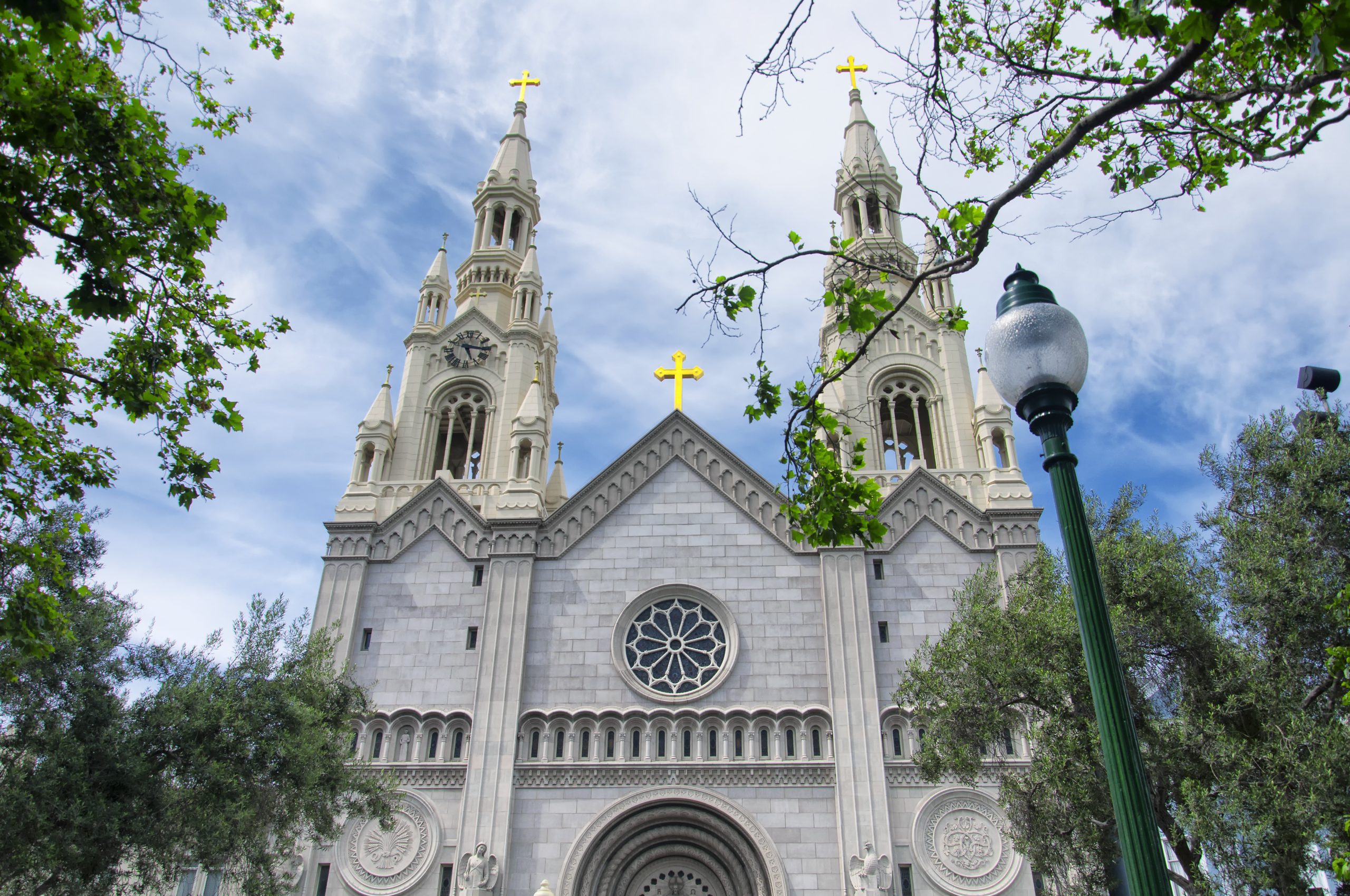Holding a Catholic funeral service can feel daunting, especially after just losing a loved one. There are centuries-old tradition and ceremony to observe as well as your loved one’s wishes. To ensure you have honored your loved one properly, a degree of planning is in order.
As with many things in life, planning is the key to handling a Catholic funeral service. This guide from the experienced funeral directors at Callaghan Mortuary & Livermore Crematory may help get the process started.
Before Your Loved One’s Passing
There are many elements to a Catholic funeral. Taking these traditions into account before someone has passed will be very helpful. Note, you can undertake many of the tasks in this guide before a loved one has passed, but the following steps need to happen premortem.
Who Qualifies for a Catholic Funeral?
Confirmed and baptized Catholics are eligible to receive a Catholic funeral service. However, there are a few exceptions to the rule. Catechumens (those in training to join the faith) can qualify. So too can young unbaptized children whose parents intend them to join the church. Catholics who are not active in the church (or unregistered) may also have a Catholic funeral if their lifestyle does not conflict with the faith. Check with your local pastor or priest and be sure a Catholic service matches the decedent’s wishes.
Last Rites
In the final days of a Catholic person’s life, it is tradition for a priest to deliver sacramental prayers. Be sure to contact your church to allow for this sacred rite. Your priest will provide comfort and prayer to the dying and their family. The priest will also bring word back to the clergy after the passing.
After Your Loved One’s Passing
As mentioned before, you can undertake many of the following tasks before your loved one’s passing. This will help you ensure the honoring of their final wishes. But, these tasks can also happen after a person’s passing.
Select a Funeral Director
Even when you are planning an intensely traditional ceremony, it is good to have a funeral director involved. A funeral director will help you:
- Arrange transportation for the body
- Plan the wake or memorial
- Help you find the right casket or urn
- Work with your florist
- Work with your church
- Make cemetery arrangements
- And they will help accommodate your budget
Having these tasks handled while you are mourning is an important relief.
Cremation v. Burial
While Christianity prefers burial, there are allowances for cremation. In 1963, the Vatican declared that cremated individuals may still receive Catholic funeral rites. Though the Vatican has banned the scattering of ashes in recent years, cremation has become more accepted.
Cremation is often less expensive than traditional burial, and some actually choose it for themselves. This is a topic to discuss with your loved ones and your church in order to find the best option.
Where Will You Hold the Funeral?
You have several options when it comes to determining where to hold the funeral. If you have discussed it with your loved one beforehand, then the decision is already handled. If this was a decision you withheld for later, you have several options to choose from. You can hold a Catholic funeral service at your church, the cemetery, a crematorium or a funeral home. Your choice depends on your loved one’s wishes and how you feel it best to celebrate their life. Whether you are having a mass or liturgy could also play into this decision. Talk to your pastor to find out what venue matches the proper ritual.
Contacting Friends and Family
Letting family and friends know your loved one has passed is one thing, but who do you invite to the funeral? There may be members of your congregation you wish to invite, distant relatives or people important to your loved one. If discussed before passing, this task becomes much easier and allows your loved one to make his/her wishes clear.
This is also a good time to determine flower arrangements. Perhaps you would like for your guests to make a donation to charity in lieu of flowers.
Making the Final Decision
Communication is key to getting things to work smoothly when it comes to any funeral. For a Catholic funeral service, maintaining open channels to your pastor and funeral director is key. Both parties may have a checklist or form to further help you make arrangements.
Remember, a life well-lived is a life well celebrated. It is you and your family’s wishes that will shape that celebration and make it special. Funeral directors and clergy are here to help make these wishes happen in a way that honors your loved one as you return their spirit to God.


